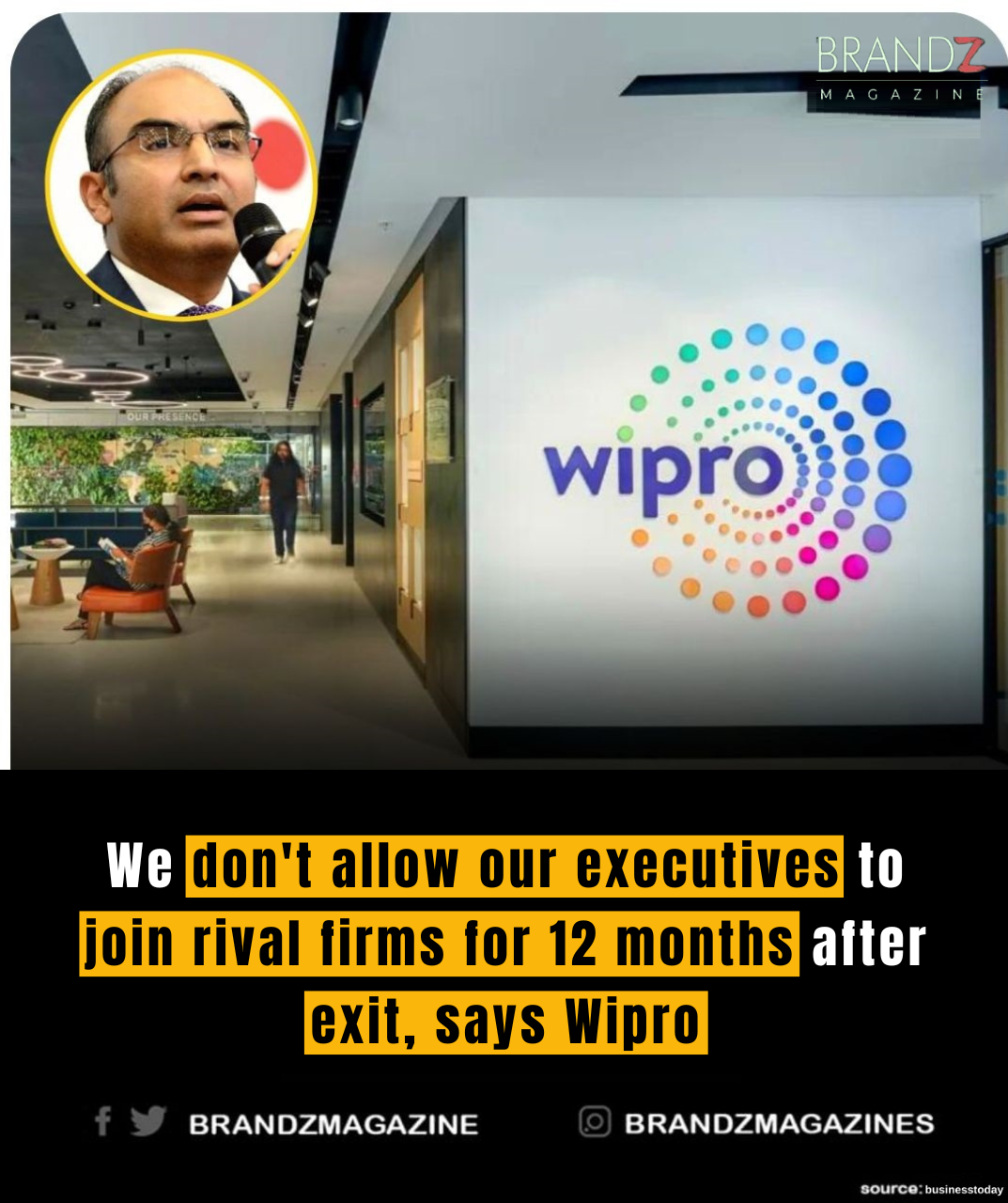
In the dynamic landscape of the IT services industry, the year 2023 marked a significant period of change for Wipro, one of India’s major players in the sector. The company faced a notable setback with the departure of more than 10 top-level executives, including Chief Financial Officer (CFO) Jatin Dalal and Senior Vice President (SVP) Mohd Haque. The shockwaves reverberated through the industry when these key figures made a surprising move to join rival firm Cognizant.
The departure of executives at such a scale raised eyebrows and prompted speculation about the reasons behind this exodus. Wipro, in response, shed light on a crucial detail – a non-compete clause that restricts senior executives from joining any of Wipro’s 10 main competitors. This list includes industry giants such as Accenture, Capgemini, Cognizant, Deloitte, DXC, HCLTech, IBM, Infosys, Tata Consultancy Services (TCS), and Tech Mahindra.
The competitive landscape of the IT services industry is fiercely contested, with companies vying for talent, innovation, and market share. The departure of executives, particularly to a direct competitor like Cognizant, added an extra layer of complexity to an already competitive scenario. Wipro’s statement about the non-compete clause underscored the seriousness with which the company views talent retention and safeguarding its intellectual capital.
Non-compete clauses are standard in many industries, aiming to protect a company’s interests by preventing key employees from immediately joining competitors after their departure. In the IT services sector, where proprietary knowledge, client relationships, and innovative solutions are crucial assets, these clauses play a vital role in maintaining a competitive edge.
The industry watchers have been keenly observing the aftermath of this leadership exodus, contemplating its potential impact on Wipro’s strategic direction, organizational culture, and market standing. Wipro’s ability to swiftly fill these leadership gaps and recalibrate its strategies will likely influence its trajectory in the coming months.
The departure of the CFO and SVP, who are instrumental in financial governance and operational excellence, respectively, raises questions about Wipro’s resilience and adaptability in managing such significant changes. The company’s response to this challenge will be closely monitored by investors, clients, and industry analysts.
As the IT services industry continues to evolve, with technology advancements, changing client demands, and global economic shifts, adaptability and strategic leadership become paramount. Wipro’s journey in navigating the aftermath of this executive departure will be a case study for organizational resilience in the face of unexpected challenges.
In conclusion, Wipro’s experience in 2023 serves as a reminder of the delicate balance companies must strike between talent management, industry competitiveness, and the implementation of contractual safeguards. The company’s ability to regroup, attract new leadership, and maintain its competitive edge will undoubtedly shape its narrative in the unfolding chapters of the dynamic IT services industry.

